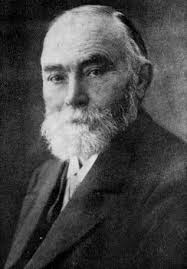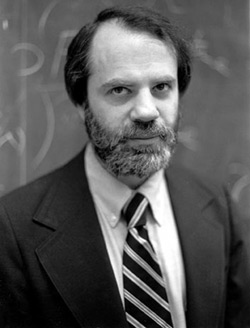
Philosophy 134: Philosophy of Language
Winter 2020
time: MWF 11:00-11:50?
location: H&SS 1128A
Instructor: Jonathan Cohen
(email: my last name, then the symbol for at, then ucsd DOT
edu)
Office
hours Friday, 10-11am in H&SS 7022.
Overview
This course is an introduction to the philosophy of language. Philosophy
of language concerns quite a large number of topics, including meaning,
truth, content, reference, the syntax and semantics of various linguistic
constructions, the nature and role of presupposition in communicative
interchange, speech acts, figurative uses of language, questions about
the ontology of languages, the epistemology of language understanding
and language learning, the mental/psychological basis of linguistic
understanding and use, and so on.
Since we can't possibly study all of these topics, we'll focus our
energy on topics that are most central in recent philosophical work on
language, and that have far-reaching consequences for other topics in
philosophy of language and other areas of philosophy.
In particular, we'll be concentrating on philosophical attempts to
understand reference and meaning, and a bit of pragmatics.
Course Requirements
Those taking the class for credit are expected to hand in three short (5-7)
page papers.
There will be one assignment corresponding to each of our five course
segments.
Only the final paper is mandatory for everyone, since it is your final
exam (see below).
Apart from that one, you'll be asked to write two of the other four
papers.
Your choice which two.
Putting it all together, then, you'll write three papers for the
course.
I'll hand out a list of topics for the papers before each is due.
Grades will be determined on the basis of the three papers, and I'll
use class participation as a way of deciding borderline cases.
As remarked above, the paper corresponding to the fifth segment
will count as your take-home final exam: it will be due on Monday 16 March
2020 at 3pm (the officially assigned day and time of exam week).
There will be no sit-down midterm or final exam for the course
apart from the papers.
Make-ups
Every enrolled student is allowed a single 24 hour extension during
the quarter with no questions asked and no grade penalty taken so
long as the request is made before the paper in question is due.
Respect
Use of laptops, tablets, and phones won't be permitted in class,
except in special cases.
Contact me for permission if you have specific reasons why you
will need to use any of these devices.
Academic Integrity
Violations of academic integrity will not be tolerated in this
course; violators will receive an F on at least the relevant
assignment and possibly the course, and will be subjected to UCSD's
disciplinary procedures (which could result in penalties including
permanent explusion from the university).
You are responsible for knowing and adhering to the UCSD
Policy on Integrity in all respects.
In particular, you may not cause or allow your work for this course to
resemble that of any other person, and all use of the ideas or words
of anyone other than a paper's author must be acknowledged properly.
I don't care a huge amount about specific citation formats; I do care
a huge amount that sources are acknowledged.
As far as collaboration goes, it's fine (it's encouraged) to talk
about the philosophical issues with other students or anyone
else you like; but when it is time to write up an essay you should do
so entirely by yourself.
If you have any questions about the Policy on Integrity or how to
follow it (e.g., if you are unsure how to cite ideas from other
sources) please ask me!
I am very happy to help prevent real or apparent violations of
academic integrity before they occur, and very unhappy to discover
that they have occured.
(As you may have noticed, I feel very strongly about this issue.)
To ensure standards of academic integrity are met, I'll
ask you, as a condition on taking this course, to run all of your
assigned work for the course through Turnitin.com,
which checks your paper for textual similarity to all of the other
papers in its databases.
(Your submitted papers will also be included as source documents in
the Turnitin.com reference database, solely for the purpose of
detecting plagiarism, going forward.)
You'll need to set up an account there (might as well do it now), and
then connect your account to our class list, for which you'll need the
class name (Philosophy of Language (Winter 2020)) class ID (23305118)
and the password (frege).
Reading Materials
I have put all of the readings for the course
on electronic
reserve at Giesel Library.
Many are also linked below (jstor pages, which may require access from
on campus/use of the university's vpn from off campus).
Most but not all of them are also printed in Peter Ludlow's Readings in
the Philosophy of Language (MIT Press, 1997), in case you'd like
to have them in one convenient printed volume.
Tentative Schedule
This schedule is tentative in both its content and its timing; I reserve
the right to add, subtract, or reschedule items as the course progresses.
 |
Segment 1 (weeks 1-2): Quine and logical empiricism
|
 |
Segment 2 (weeks 3-4): Frege on sense and reference
- Frege, "On Sense and Reference"
- Frege, "The Thought"
|
 |
Segment 3 (weeks 5-6): Definite descriptions
|
 |
Segment 4 (weeks 7-8): Causal and description theories of
reference
|
 |
Segment 5 (weeks 9-10): Pragmatics
|
Advice
Writing philosophy is difficult, and doing it well takes time and
practice.
As this is an upper level philosophy course, I assume you've had some
practice already, and you're about to get yet more of it in this course.
In addition, you may find it useful to consult some of
Jim Pryor's excellent tips on
philosophical writing.
Obviously, these materials are not designed for our writing
assignments in particular, but the advice given is generally sound
and applicable.
I can't emphasize enough the importance of starting your writing
early.
The process of writing -- even if only starting with a half-baked idea --
will help you crystalize your thoughts and get clear on what you do
and don't understand.
That, in turn, will tell you what you need to do next to refine your
ideas.
Also, starting early allows you the (necessary) luxury of setting out,
reconsidering, revising, and developing lines of thought.
And if there's something in the course that you don't understand,
come see me about it.
Getting the issue cleared up sooner rather than later means that it
won't create other problems for you, and will allow you more time to
enjoy the warm glow of understanding.
This is why God invented office hours.
You've paid your tuition, so don't let material go over your head;
come and get the education you deserve.




